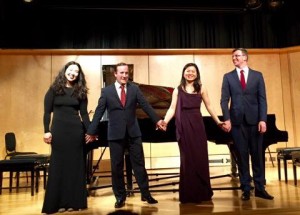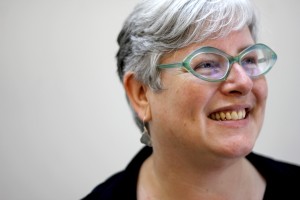
On May 11th 2016, Professor Ellen Waterman (School of Music, Memorial University of Newfoundland, Canada) presented a research seminar in the Music Department at City entitled: ‘Wilderness isn’t What It Used to Be: The ecology of experimental music performance in Canada’.
Professor Waterman has spent the 2015-16 academic year based at the University of Cambridge and spoke to us about her work.
Could you tell us a little about your research to date and what you’re working on at the moment?
I have four main research interests: artistic research (as an improvising flutist/vocalist), ethnography of contemporary music performance, sound (especially sound in performance environments), and critical studies in improvisation.
My current book project is a comparative ethnography of twelve experimental music festivals from across Canada covering the decade between 2003 and 2013. It’s called Sounds Provocative: The Ecology of Experimental Music Performance in Canada and it sets out to do two things: 1) to explore the fascinating range of experimental music practices found in Canada; 2) to develop a theory of the ecology of musical performance. For the latter, I’m bringing together ideas from performance studies with ecosystems theory and acoustic ecology. I’ve created a research website at www.sonicecology.com which includes quite a lot of performance video, interviews, and short essays as well as links to other writing I’ve done on this project.
I gather you’re involved in a large improvisation project. Could you talk about that?
The International Institute for Critical Studies in Improvisation – or IICSI – is funded by a Partnership Grant from the Social Sciences and Humanities Research Council of Canada. It is a partnered institute among six universities (University of Guelph, McGill University, Memorial University of Newfoundland, University of Regina, University of British Columbia and the University of California, Santa Barbara) plus one foundation partner (Musagetes).
IICSI grew out of the vision of Ajay Heble, a scholar, musician, and artistic director of the Guelph Jazz Festival. Simply put, the impetus behind critical improvisation studies is the idea that musical improvisation (and by extension improvisation in other performing arts) has important things to tell us about broader social organization and ethical relations. As our project description states:
‘As a form of musical practice, improvisation embodies real-time creative decision-making, risk-taking, and collaboration. Musical improvisation can be considered not simply as a musical form, but, perhaps more urgently, as a complex social phenomenon that mediates transcultural inter-artistic exchanges that produce new conceptions of identity, community, history, and the body. The International Institute for Critical Studies in Improvisation is a central source for the collection and dissemination of research on the social implications of improvisational practices.’ http://www.mun.ca/music/research/iicsi.php
www.improvisationinstitute.ca
For the past decade, together with an international team of 58 scholars and musicians from 20 institutions worldwide, and over 30 community partners (from music festivals to grassroots social welfare organizations) we have participated in building the now established field of critical studies in improvisation. IICSI’s mandate is “to create positive social change through the confluence of improvisational arts, innovative scholarship, and collaborative action.” Our work is organized around three main research topics:
- Improvisation as Practice-Based Research
- Improvisation, Community Health, and Social Responsibility
- Improvisation, Intermediality, and Experimental Technologies
We run an annual postdoctoral fellowship competition, and hold colloquia and workshops across our sites in addition to projects with our community partners.
Are you active as a performer as well?
Yes! I’ve never seen much of a distinction between my work as a performer and my scholarship since both require creativity and critical reflection. Among other things, I perform in ~spin~ a duo for flute/voice and live electronics and sound diffusion with James Harley, and in Talisman, a duo with electric guitarist Andrew Staniland. In recent years I’ve begun working with Sundanese gamelan, particularly the suling.
How has your year in the UK been and what have you enjoyed most?
I’ve had a fantastic experience living and working at Robinson College, University of Cambridge this year. Beyond the rich array of people, concerts, talks, conferences etc., I have to say that I’ve really enjoyed the beautiful English countryside and the long, glorious spring! Playing with the University of Cambridge Gamelan Society has also been a highlight.



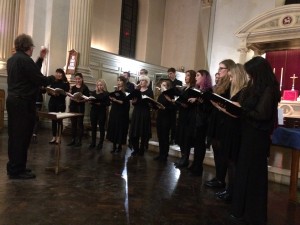
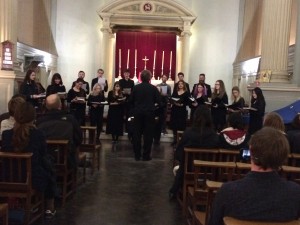
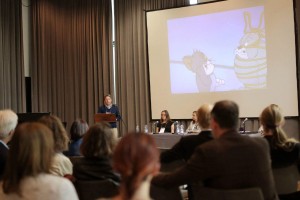
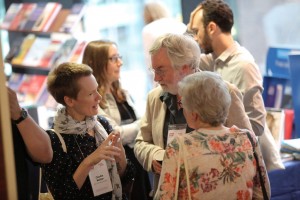

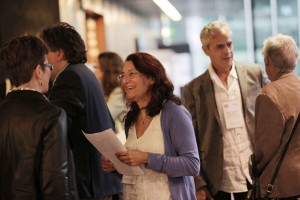
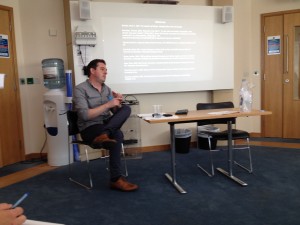

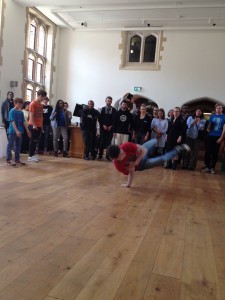
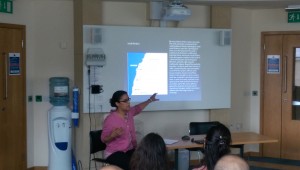
![image1[1]](https://blogs.city.ac.uk/music/files/2016/06/image11-1r8lk3f-300x225.jpg)
